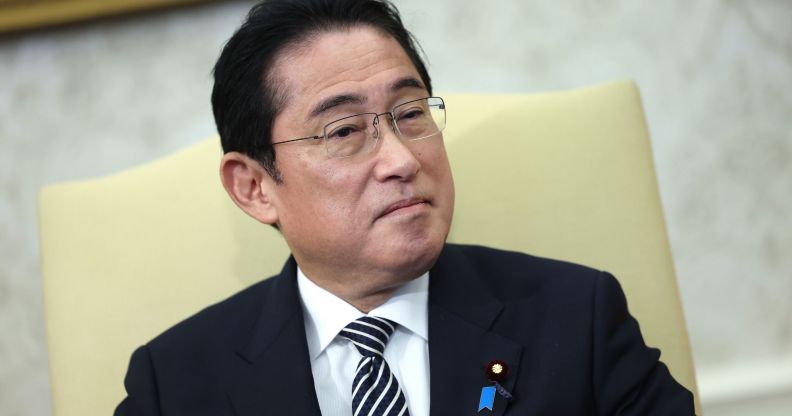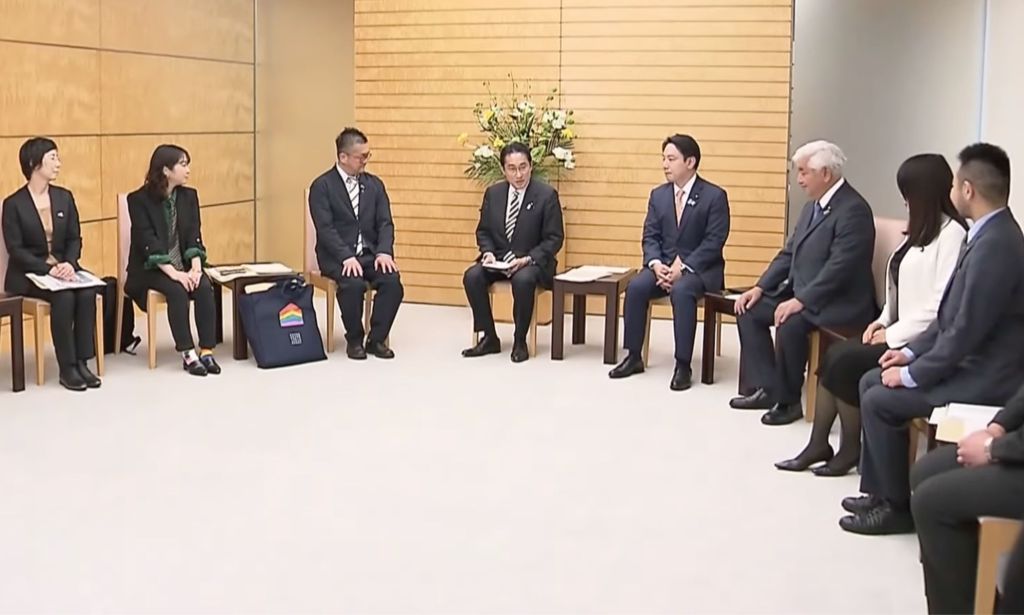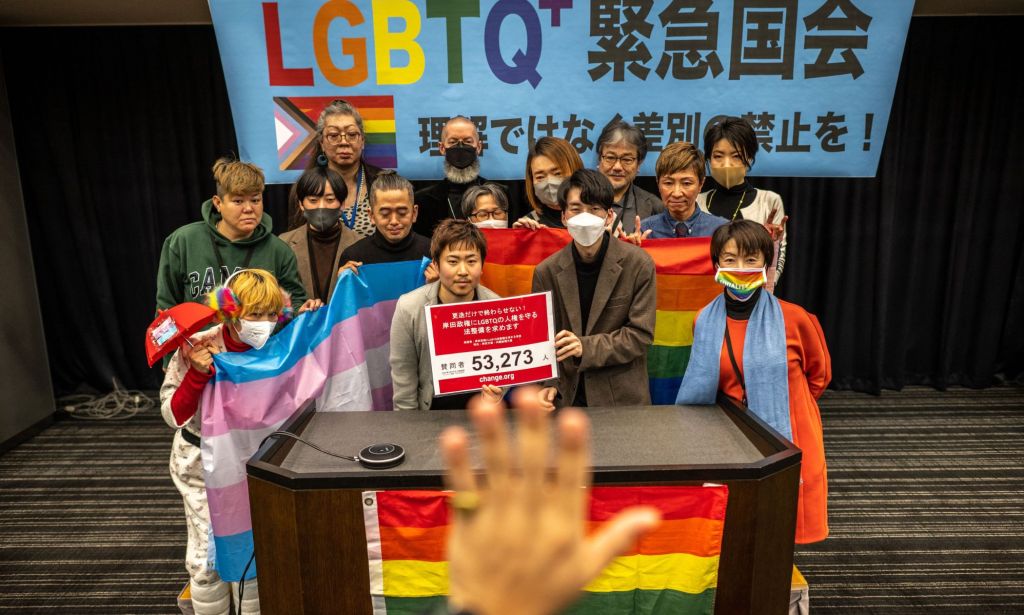Japanese prime minister apologises to LGBTQ+ activists over former aide’s bigoted remarks

Japanese prime minister Fumio Kishida said his former aide’s anti-LGBTQ+ remarks were “unjust discrimination” and “extremely inappropriate”. (Getty)
Japan’s prime minister Fumio Kishida apologised for discriminatory remarks made by his former aide during a meeting with LGBTQ+ groups.
Kishida met with activists from LGBTQ+ organisations in Japan on Friday (17 February) and offered an apology for anti-LGBTQ+ remarks made by Masayoshi Arai, a former government aide.
The prime minister fired Arai in the wake of the backlash against his remarks, and Kishida said Arai’s remarks were “deemed unjust discrimination” and were “extremely inappropriate”.
“I apologise sincerely for making all of you here and many other people feel uncomfortable,” Kishida said to the LGBTQ+ activists at the meeting.
After the meeting, Gon Matsunaka, head of the Pride House Tokyo, told reporters that Kishida said he hoped to take a step-by-step approach to LGBTQ+ rights and fighting discrimination.
“We expressed our wish to have more opinions from the (LGBTQ) community absorbed and our stories heard,” Matsunaka added.
Japan Alliance for LGBT Legislation executive director Yuichi Kamiya said he expected a move toward equal rights to “drastically accelerate.”

During the meeting, Kishida sought insights from LGBTQ+ advocates on the issues that queer people face in Japan. The prime minister admitted further effort is needed to “achieve a diverse society where everyone respects each other’s human rights and dignity and can live a fulfilling life”.
He also appointed Masako Mori, a former justice minister, as his special aide in charge of promoting understanding for LGBTQ+ people in Japan.
In January, backlash over remarks by Arai brought fresh attention to Japan’s lack of legislation on civil rights protections for the LGBTQ+ community and policies on same-sex marriage.
Arai reportedly said he “wouldn’t want to live next door” to queer or transgender couples, adding he “doesn’t even want to look at them”.
He also believed that permitting same-sex marriage in Japan would “change the way society is”, and he claimed “quite a few people” would leave the country if same-sex marriage was legalised.
Just a day after, Kishida announced he had dismissed Arai for his anti-LGBTQ+ comments, which the former aide later apologised for.
The prime minister called Arai’s remarks “outrageous and completely incompatible with the administration’s policies”.
Japan remains the only G7 nation that hasn’t legally recognised same-sex marriage or enacted an anti-discrimination law to protect LGBTQ+ people.
Several same-sex couples have filed lawsuits in recent years arguing Japan’s ban on same-sex marriage violated the country’s constitution. However, the bans have been routinely upheld by high courts.

Campaigns for equal rights and discrimination protections for LGBTQ+ people have been quashed by conservatives in Kishida’s government.
Activists called on the prime minister’s administration to enact such legislation ahead of the Tokyo Olympics, but this was stonewalled by Kishida’s governing Liberal Democratic Party.
There have been renewed calls for an anti-LGBTQ+ discrimination law to be reintroduced before Japan hosts a G7 summit in May.
Takako Uesugi, a lawyer and director of Marriage For All Japan, said Japan must acknowledge it isn’t “fit to lead the G7 summit if we leave the situation unaddressed”.
“Discriminatory remarks by the prime minister’s aide made it clear to the rest of the world that Japan is a country that does not care about the rights of sexual minorities,” Uesugi said.
How did this story make you feel?

